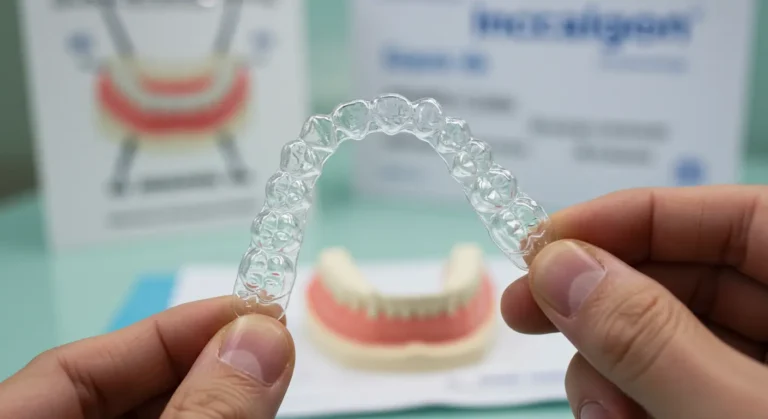Introduction to Invisalign in the UK
If you’re considering teeth alignment and looking for a discreet and effective solution, you may ask, “how much is Invisalign UK?” Invisalign is an innovative orthodontic treatment that gradually uses clear aligners to shift your teeth into their ideal positions. Unlike traditional metal braces, Invisalign aligners are virtually invisible, making them a popular choice for adults and teens alike.
This article will explore the typical cost of Invisalign treatment in the UK, factors influencing pricing, and whether this treatment is a good investment in dental health.
How Much is Invisalign UK: Price Breakdown
The cost of Invisalign UK treatment can vary depending on several factors, including the complexity of your case and the dental clinic you choose. The average price for an entire course of Invisalign treatment in the UK ranges from £1,500 to £5,500.
Here’s a general breakdown:
- Mild cases: £1,500 – £2,500
- Moderate cases: £2,500 – £4,000
- Complex cases: £4,000 – £5,500
For some individuals, simpler treatments can be cheaper, while more severe cases requiring extensive tooth movement may increase the price. This is why it’s essential to consult with a licensed Invisalign provider to get an accurate quote based on your specific needs.
Factors That Affect the Cost of Invisalign in the UK
Several factors can influence the cost of Invisalign in the UK. Understanding these factors will help you estimate how much you might pay for treatment. Here are some key elements to consider:
- Treatment Complexity: The more complex your alignment needs, the higher the cost. However, the cost is typically lower for minor adjustments.
- Geographical Location: The cost can also vary depending on where you are in the UK. Clinics in larger cities like London may charge more than those in smaller towns.
- Dentist’s Expertise: Experienced and highly-rated Invisalign providers may charge more for their expertise.
- Length of Treatment: Longer treatment times with more aligners can increase the total cost.
Is Invisalign Worth the Investment?
Many people wonder if it’s worth the investment considering the cost of Invisalign UK. Here are some reasons why many people feel Invisalign treatment is a valuable choice:
- Aesthetics: The clear aligners are nearly invisible, making them a more discreet option than traditional braces.
- Comfort: Invisalign aligners are custom-made to fit your mouth, making them more comfortable than metal braces.
- Convenience: Since the aligners are removable, you can eat and drink without restrictions, unlike traditional braces.
While Invisalign might be more expensive than traditional braces, the comfort, convenience, and aesthetic advantages make it a worthwhile investment for many.
Financing Your Invisalign Treatment
For those wondering how to afford Invisalign UK, many dental clinics offer financing plans to help manage the cost. Payment options typically include:
- Monthly Payment Plans: These plans allow you to spread the cost over several months or years with no interest, making it more affordable.
- Dental Insurance: Check if your dental insurance plan covers Invisalign treatment, as some policies offer partial coverage.
- Interest-Free Credit: Some clinics offer interest-free credit for a specified period, allowing you to pay for your treatment in instalments.
Before committing, exploring these financing options is essential to determine what works best for your budget.
Read More : Health Unlocked: 7 Key Benefits of Unlocking Your Health Potential for a Better Life
Conclusion
The question “How much is Invisalign UK?” doesn’t have a one-size-fits-all answer, as the cost can vary significantly based on your specific needs. However, with prices ranging from £1,500 to £5,500, it’s essential to consider the factors influencing the cost and weigh the benefits of this discreet and comfortable treatment. With the option to finance your treatment, Invisalign is an accessible choice for many individuals seeking a beautiful smile.


1 Comment
Pingback: Two Conditions That Are Often Misdiagnosed as Carpal Tunnel Syndrome (Explained)